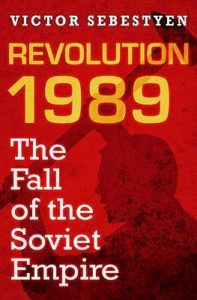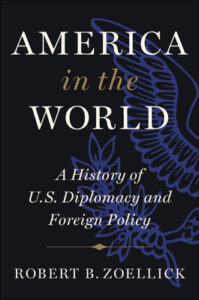America today faces a potentially existential challenge to its national security as two great power adversaries, Russia and China, contest its post-Cold War dominion. How did we get here? asks Andrew A. Michta, the dean of the College of International and Security Studies at the George C. Marshall European Center for Security Studies.
Simply put, our political class failed to appreciate that the United States triumphed over the Soviet Union not because of the power of liberal ideals but because in 1947, when the Cold War competition was fully joined, our country possessed a massive industrial base, the global reserve currency, the largest gold reserves, half of global GDP, a navy larger than all the world’s navies combined, an expanding population and rapidly growing middle class, and a monopoly on atomic weapons, he writes for the American Interest:
 Few argued at the time that we had won because our adversary could not match our industrial base and innovative research universities and labs—especially as we moved into the digital age—and that henceforth it should be the government’s sacred duty to preserve and protect advantages that took generations to build. The implosion of the Soviet empire was greeted by Washington’s intelligentsia as an ideological triumph par excellence. In a bizarre replay of the Bolshevist fiction about the universality of Marxist dogma, our elites post-1990 seemed certain that a new globalist age had dawned in which America’s sui generis history and political tradition would first claim a universal quality and ultimately dissolve in the new global order.
Few argued at the time that we had won because our adversary could not match our industrial base and innovative research universities and labs—especially as we moved into the digital age—and that henceforth it should be the government’s sacred duty to preserve and protect advantages that took generations to build. The implosion of the Soviet empire was greeted by Washington’s intelligentsia as an ideological triumph par excellence. In a bizarre replay of the Bolshevist fiction about the universality of Marxist dogma, our elites post-1990 seemed certain that a new globalist age had dawned in which America’s sui generis history and political tradition would first claim a universal quality and ultimately dissolve in the new global order.
While one could possibly argue in the case of Russia that a country at least partly European in terms of its heritage and culture might, however briefly, entertain the notion of following America’s lead and adopting a version of Western liberal democracy, the idea that communist China, with its distinct civilization and culture going back millennia, might in short order morph into something akin to a liberal democratic state and become a “responsible stakeholder in the global system” was borderline lunacy, Michta contends.
To Robert Zoellick’s mind, the twists and turns in American foreign policy have been driven by the interplay of five enduring traditions, the FT’s Philip Stephens writes:
 The first — to secure hegemony in its own hemisphere — brought among other things the Monroe Doctrine, the Panama Canal and Washington’s backing for Latin American generals during the cold war:
The first — to secure hegemony in its own hemisphere — brought among other things the Monroe Doctrine, the Panama Canal and Washington’s backing for Latin American generals during the cold war:- The second theme has been the need to open foreign markets to American products and technology;
- The third has been the changing approach to alliances. Alexander Hamilton eschewed all entanglements. Yet Harry Truman, Dean Acheson and George Marshall built after 1945 the most powerful alliance system the world has ever seen.
- Zoellick’s fourth tradition is the deference that American leaders must show to public opinion;
- The fifth is the exceptionalism that claims that the US has always served a larger purpose.
The tension between these two explains some of the biggest policy swerves, Stephens adds. Thus Woodrow Wilson won the 1916 presidential election with a promise to stay out of the first world war, changed his mind to embrace liberal interventionism and then found his grand scheme for the League of Nations disavowed by the Congress.
Zoellick understands better than most how inseparable America’s fate is from the rest of the world, adds former Secretary of State and NDI chair Madeleine Albright.
In former @NEDemocracy board member Robert Zoellick’s fine history of US foreign policy, the interventionist and the isolationist have mingled with other impulses in shaping America’s relations with allies and adversaries. https://t.co/HulGvxSbjj via @financialtimes
— Democracy Digest (@demdigest) August 7, 2020







